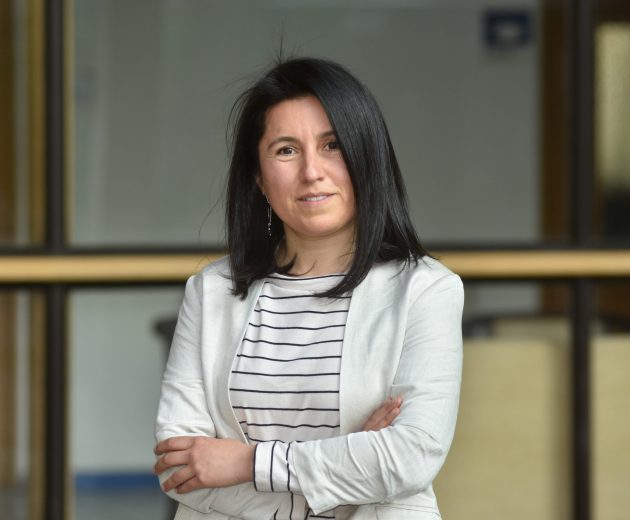
Salvatierra Lopez, Loreto
PhD student, admission 2021
Nationality: Chilean
Education: Psychologist, UC. Global MBA, University of Chile. Master of Business, The University of Queensland (UQ), Australia
Introduction: Psychologist and MBA, with experience in people management, process improvement and teaching. It investigates the development of STEM skills and the involvement of parents in the STEM education of their children, with a view to promoting the interest and participation of boys and girls in these disciplines from an early age, thus reducing socioeconomic and gender gaps.
About my thesis
Thesis: Development of STEM competences in early childhood: relationship with the characteristics of the parents, the family environment and the interactions between parents and children between zero and three years.
Project description: The objective is to determine the relationship between parent-child interactions, parental characteristics, family environment, and the development of STEM skills in children between zero and three years of age.
Director: Valeria Cabello, Marigen Narea, Co-Director
Line of research: Early childhood teaching and learning
Publications and presentations
Publications
- WoS. Salvatierra, L., & Cabello, VM (2022). Starting at home: What does the literature indicate about parental involvement in early childhood STEM education? Education Sciences, 12, 218. DOI: 10.3390/educsci12030218
- WoS. Aracena, M., Krause, M., Pérez, C., Méndez, MJ, Salvatierra, L., Soto, M., Pantoja, T., Navarro, S., Salinas, A., Farah, C. et al. . (2009), A cost-effectiveness evaluation of a home visit program for adolescent mothers. Journal of Health Psychology, 14, 878-887. DOI: 10.1177/1359105309340988
- WoS. García-Huidobro D., Núñez F., Vargas P., Astudillo S., Hitschfeld M., Gennero R., Salvatierra L., & Benavente, A. (2006). Expectations of undergraduate medical students in relation to the expected physician profile. Chilean Medical Journal, 134(8), 947-954. DOI: 10.4067/S0034-98872006000800001
- sciELO. Salvatierra, L., Aracena, M., Ramírez, P., Reyes, L., Yovane, C., Orozco, A., Lesmes Páez, C. and Krause, M. (2005). Self-concept and life project: Perceptions of pregnant adolescents from a peripheral sector of Santiago, participants in a health education program. Journal of Psychology, 14(1), 141-152. DOI: 10.5354/0719-0581.2012.17419
Participation in projects
CONICYT/ANID Networks Project No. 180109. "Network for the development of technological knowledge in the training of teachers in STEAM areas", 2018
Research line of the program: School teaching and learning
Academic: Valeria Cabello
Student: Loreto Salvatierra
Project summary: Franco-Chilean network formed by Aix-Marseille Université, University of Chile and Pontificia Universidad Católica de Chile. Identifies teachers' needs and formulates proposals to improve technology-based teaching in STEAM areas and develop technology-based teaching skills.
Millennium Nucleus for the Study of the Development of Early Mathematics Skills (NCS2021_014, ANID), 2021
Research line of the program: Early childhood teaching and learning
Academic: Maria Ines Susperreguy
Student: Loreto Salvatierra
Project summary: Understand how boys' and girls' mathematical experiences contribute to equitable learning opportunities. Understand the mechanisms that ensure successful mathematical trajectories in the future.
The first thousand days: types and quality of child care in Chile and its association with child development, 2019
Research line of the program: Inclusion for development, Center for Educational Justice (CJE)
Academic: Marigen Narea, UC School of Psychology
Student: Loreto Salvatierra
Project summary: Characterize the trajectories of types of care experienced by boys and girls, considering the quality of these types of care and their association with cognitive, language, and socio-emotional development of boys and girls.
